Michelle Lin
Bias Analysis in Unconditional Image Generative Models
Jun 10, 2025
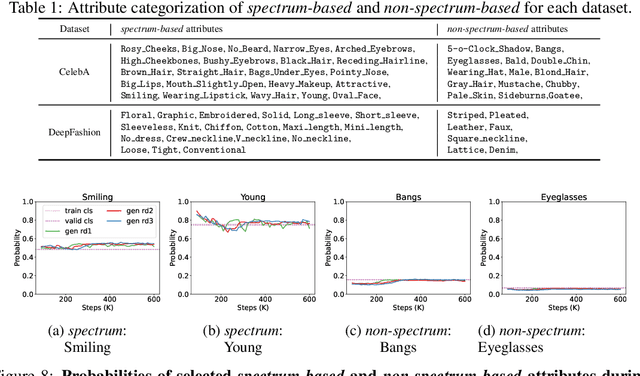
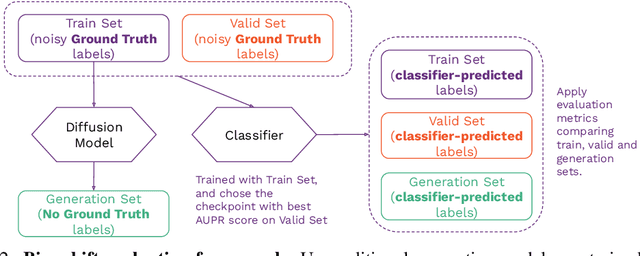

Abstract:The widespread adoption of generative AI models has raised growing concerns about representational harm and potential discriminatory outcomes. Yet, despite growing literature on this topic, the mechanisms by which bias emerges - especially in unconditional generation - remain disentangled. We define the bias of an attribute as the difference between the probability of its presence in the observed distribution and its expected proportion in an ideal reference distribution. In our analysis, we train a set of unconditional image generative models and adopt a commonly used bias evaluation framework to study bias shift between training and generated distributions. Our experiments reveal that the detected attribute shifts are small. We find that the attribute shifts are sensitive to the attribute classifier used to label generated images in the evaluation framework, particularly when its decision boundaries fall in high-density regions. Our empirical analysis indicates that this classifier sensitivity is often observed in attributes values that lie on a spectrum, as opposed to exhibiting a binary nature. This highlights the need for more representative labeling practices, understanding the shortcomings through greater scrutiny of evaluation frameworks, and recognizing the socially complex nature of attributes when evaluating bias.
Alberta Wells Dataset: Pinpointing Oil and Gas Wells from Satellite Imagery
Oct 11, 2024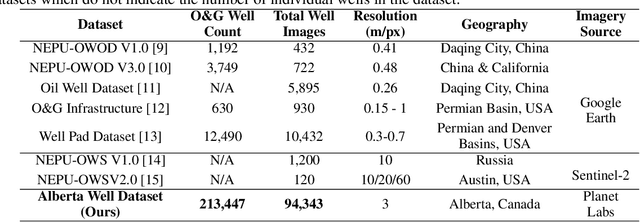



Abstract:Millions of abandoned oil and gas wells are scattered across the world, leaching methane into the atmosphere and toxic compounds into the groundwater. Many of these locations are unknown, preventing the wells from being plugged and their polluting effects averted. Remote sensing is a relatively unexplored tool for pinpointing abandoned wells at scale. We introduce the first large-scale benchmark dataset for this problem, leveraging medium-resolution multi-spectral satellite imagery from Planet Labs. Our curated dataset comprises over 213,000 wells (abandoned, suspended, and active) from Alberta, a region with especially high well density, sourced from the Alberta Energy Regulator and verified by domain experts. We evaluate baseline algorithms for well detection and segmentation, showing the promise of computer vision approaches but also significant room for improvement.
Data-Centric Green AI: An Exploratory Empirical Study
Apr 07, 2022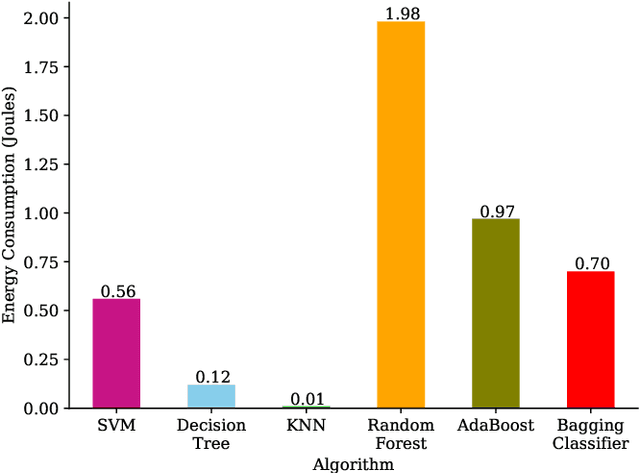


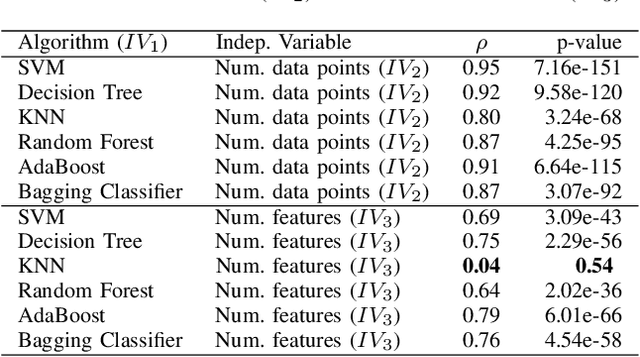
Abstract:With the growing availability of large-scale datasets, and the popularization of affordable storage and computational capabilities, the energy consumed by AI is becoming a growing concern. To address this issue, in recent years, studies have focused on demonstrating how AI energy efficiency can be improved by tuning the model training strategy. Nevertheless, how modifications applied to datasets can impact the energy consumption of AI is still an open question. To fill this gap, in this exploratory study, we evaluate if data-centric approaches can be utilized to improve AI energy efficiency. To achieve our goal, we conduct an empirical experiment, executed by considering 6 different AI algorithms, a dataset comprising 5,574 data points, and two dataset modifications (number of data points and number of features). Our results show evidence that, by exclusively conducting modifications on datasets, energy consumption can be drastically reduced (up to 92.16%), often at the cost of a negligible or even absent accuracy decline. As additional introductory results, we demonstrate how, by exclusively changing the algorithm used, energy savings up to two orders of magnitude can be achieved. In conclusion, this exploratory investigation empirically demonstrates the importance of applying data-centric techniques to improve AI energy efficiency. Our results call for a research agenda that focuses on data-centric techniques, to further enable and democratize Green AI.
 Add to Chrome
Add to Chrome Add to Firefox
Add to Firefox Add to Edge
Add to Edge